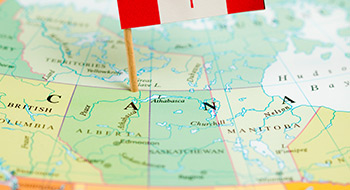

It’ll likely be business as usual if the Liberals come into power on Monday. While the party has promised tax and investment policy changes, experts say there’s nothing in their platform that suggests a major shakeup.
“I don’t think [investors] have to position themselves a certain way before Monday,” says Gareth Watson, director, Investment Management & Research at Richardson GMP in Toronto. “[For] the average Canadian, their life is not going to change to an excessive degree.”
Read: Politics could shrink TFSA contribution room
Watson looked back at previous elections in the last four decades. “In all cases, the TSX and Canadian dollar, on average, moved -2.5% to +2.5% — so, not much. The reaction is not material.”
He notes that while there was a downturn after the Conservatives were elected in 2008, it was due to the financial crisis, not the new government.
Meanwhile, advisor Steve Barban says that while there could be an initial drop in the market, it shouldn’t be a long-term one. “In the short term, there will be a bit of a shock to the system because we’ll see an increase in tax to pay for some of [the party’s] initiatives,” says Barban, principal, senior financial advisor at Gentry Capital, Manulife Securities Inc. in Ottawa.
Read: Businesses scared of ORPP’s economic impact
For instance, the Liberals plan to raise taxes on the wealthy, while giving tax breaks to the middle class. “That’s great on paper, but I don’t think there’s a balance,” he says. “You’re going to have an overall net decrease in taxes because there are more middle-income people than people earning a high income.”
Watson adds if there is an increase in taxes, it should be on consumption, not income. “Some might argue Mr. Trudeau is taking the wrong approach to fund some of his programs. [When you] tax income, it might not have as great an economic impact as what you might get out of a consumption tax (like increasing the GST), mainly because you’re taking money out of the hands of people who would spend it.”
However, Watson says it’s good that the Liberals wouldn’t touch corporate taxes. “Taxation is the key factor for corporations in terms of where they put their assets.” So, keeping corporate tax rates stagnant can help stimulate the economy.
Barban adds the party’s plan to lower small business tax rates (something the Conservatives and NDP have also pledged) is also good for the economy. It’ll help small business owners — key employers in Canada.
One of the hot-button issues in the Liberal platform is the plan to reduce the TFSA limit to $5,500. Barban says his clients approach him daily, asking, “If the Liberals come to power, will we have to take the additional $4,500 out of our TFSAs? Or will the funds be grandfathered?” While Barban doesn’t know the answer, he tells clients that reducing the TFSA limit is better for the economy.
“If they were to keep the TFSA limit at $10,000, that’s better for my business. But if I analyze that move as a Canadian, all it does is take tax revenues from that extra $4,500 out of the government’s coffers to build roads and bridges. So they should reduce [TFSA room] and use those extra taxes to stimulate the economy.”
The experts also comment on the Liberal plan to continue working on a national securities regulator.
Read: What you need to know about the ORPP
“We could have a much more efficient system,” says Watson. “Why a party wouldn’t support an issue that would have a unified approach, I wouldn’t understand.”
Barban adds, “I’m paying licensing fees in five provinces and I shouldn’t have to.” However, the fact that there are still provinces opposed to the idea means “we’re miles away from a national regulator.”
This story originally appeared on the site of our sister publication Advisor.
